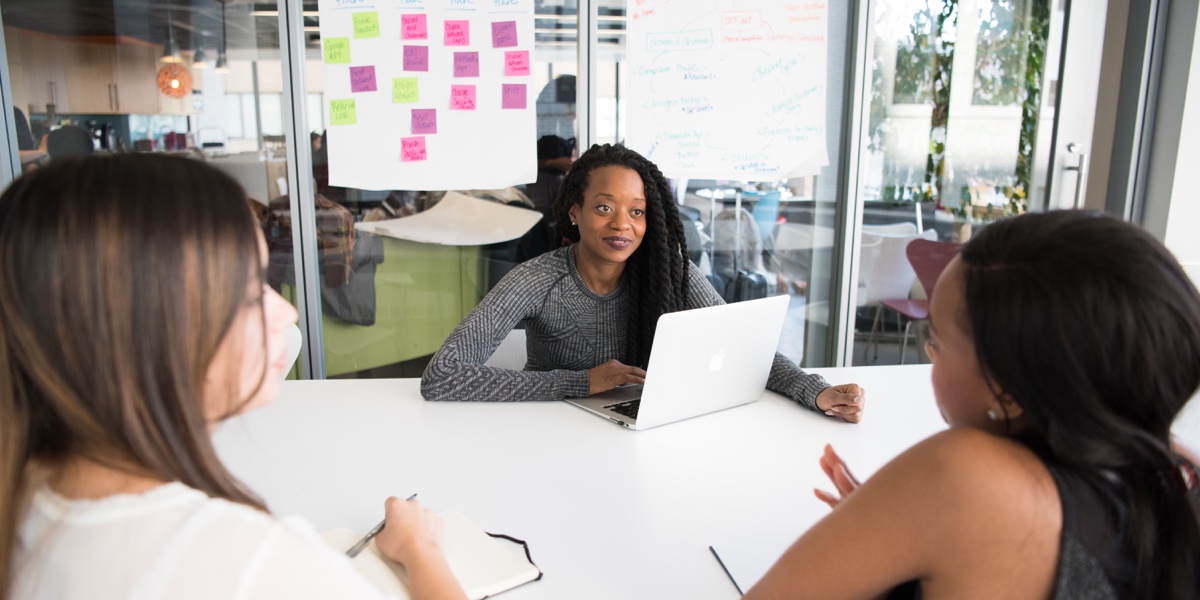Here we go again—one of the most hotly debated topics in the industry: Should designers learn to code?
It’s a question that has divided opinion for decades, and one that never seems to reach a conclusion.
It’s all too easy to get caught up in a debate about who should have which skills, but as most designers will know, the answer is rarely simple. In reality, the lines are continuously blurring, and it’s almost impossible to work within the confines of a single job description.
In the ever-evolving, competitive design industry, there’s a more relevant discussion at play. More and more, we’re asking how—not if—designers can learn to code. How can designers maintain their edge and become more agile? How can they collaborate more effectively to create great end products?
In this post, we’re not going to revisit that age-old debate of whether or not designers should learn to code. Instead, we’re going to consider a different question: How can learning to code empower you to become a better designer? Here’s what we’ll cover:
- Learning to code will enrich your design work
- Learning to code will make you a better collaborator
- Learning to code will set you apart in the job market
- How to get started
 Photo by Mimi Thian on Unsplash
Photo by Mimi Thian on Unsplash
1. Learning to code will enrich your design work
Regardless of whether or not designers need to know how to code, there’s no denying that mastering new skills will significantly enrich the work that you do. This is true of any profession: in order to progress, you need to continuously learn and strive to better yourself. The alternative is stagnation—coasting along with no real growth.
The design industry is, by nature, one of the most progressive fields to work in. The best designers think outside the box and constantly seek to innovate—and learning new skills is all part of this.
As a designer, you naturally approach your work from a design perspective. But what if you could view things from a different vantage point? Say, through the lens of a developer? Learning frontend developer skills will broaden your horizons far beyond design, and are even setting you on the path to being a full-stack designer.
You’ll discover fresh approaches to old problems, develop new ways of thinking and learn to consider your work more objectively.

Photo by Christina @ wocintechchat.com on Unsplash
2. Learning to code will make you a better collaborator
Great designers are masters of empathy—and not just for the people who are or will eventually use the products they design. If you can empathize with your colleagues, you’re in a much better position to collaborate, which can impact not just the quality of the end product, but also your career development and ability to enjoy your daily work life even more.
Learning key frontend skills will enable you to both understand and effectively communicate the technical requirements of design. But why is this important?
If you follow @Iamdevloper on Twitter, you may be familiar with this Tweet poking fun at the lack of understanding between designers and developers:
Designer: “I want you to implement custom select elements”
Developer: “No.”
Rinse and repeat.
Of course, this is a tongue-in-cheek account, but it does highlight a common problem: a discrepancy between what the designer wants and what the developer can deliver. To overcome this breakdown in communication, designers and developers need to speak each other’s language. Designers who can “speak” frontend have a much better understanding of what’s possible from a development perspective.
With some fundamental frontend skills under your belt, you can start to design for the developer as well as for your users. Even if you don’t get hands-on with code in your day-to-day work, you can design with the knowledge of how your vision will be implemented.
Speaking at Front-End London in 2016, Kristina Olivia, UI designer and creator of the Designer Does Code blog, described how she uses her knowledge of coding to make informed design decisions:
“To me, code is just really another tool for designing things. I use it to improve my work in order to understand what I’m doing. It helps me within design…because I know that I can code this up and this would work, or this wouldn’t work, this would be a really bad UX so I’m not going to design it in that way…”

Photo by Christina @ wocintechchat.com on Unsplash
3. Learning to code will set you apart in the job market
Designers who can code may have a more secure footing in the job market.
In his 2017 Design in Tech report, John Maeda predicts that intangible elements such as written content and code will have an increasingly pivotal role to play. As Elizabeth Stinson over at wired.com puts it:
“As the distinction between engineering, writing, and design becomes blurrier, design’s role in technology only stands to become more ingrained in the product development process.”
More and more, designers may need to be actively involved in the development side of things. Just as UX and UI constantly overlap, design and development will become increasingly intertwined—and up-skilling will enable you to meet this market demand.
Ultimately, frontend skills are an added USP. Multi-skilled designers stand out as agile team players—and this is the kind of versatility that many employers are looking for. Think of it as learning a foreign language; it doesn’t take away from your design expertise—it adds another dimension. Designers who can code belong to the “design unicorn” category: rare and precious!
4. How to get started
The best way to get started with growing your knowledge of frontend development is to do some general learning on the topic. As someone who thrives in the world of design, web development might seem like a vast wilderness of gibberish. But it’s actually a rich and creative world that you can learn systematically (in as little or as much detail as you’d like). Whether it’s through reading blog articles and books or listening to podcasts, this will give you a general overview of the world of web development.
In addition, you can take a free short course to do some hands-on learning over a five-day period. This is a great starting point.
Here’s a video introduction that will give you an overview and get you started (and give you a preview of the short course we’ve linked to in this section):
If you do this initial exploration and find that you’re still curious and ready to learn more there are so many great web development tutorials online. For a more structured (and mentored) learning experience, check out this Frontend Development for Designers specialization course. You might even want to explore a full web development certification!
